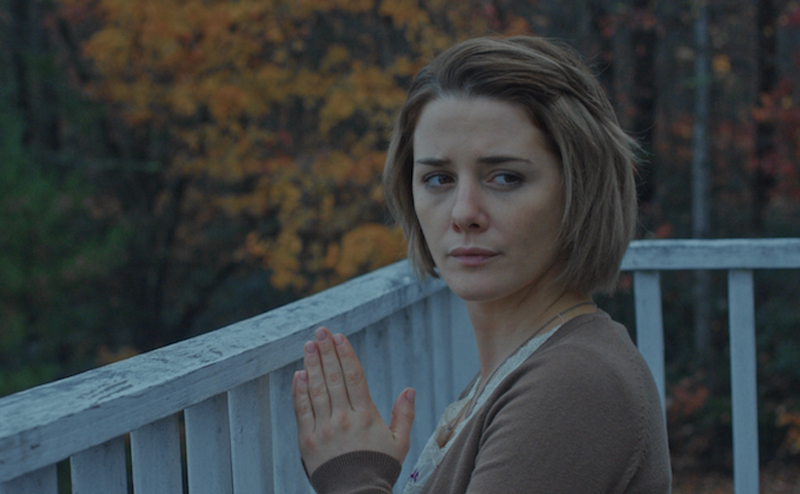There aren’t enough filmmakers for whom you can tell within any random five minutes the person behind the camera, but Zach Clark is one of the blessed few. When I first became aware of the writer/director with “Vacation” in 2010, he seemed destined to be an heir apparent to John Waters with his embrace of kitsch, yet with each passing film, he has shown just how insidious nostalgia can be while celebrating the purity of emotion it can engender. In “White Reindeer,” it was an unadulterated love of the holiday season that powered the film’s heroine (Anna Margaret Hollyman) through the other 11 months of the year after tragedy strikes, though it threatened to doom her to a fate of forever waiting for a Santa that won’t ever arrive, while in his latest film “Little Sister,” a return home becomes necessary for Colleen (Addison Timlin), a nun in training whose mother superior (Barbara Crampton) remains unconvinced she’s fully committed to the cloth in the days leading up to taking her first vows.
There’s reason for this – Colleen will still wander into the random performance art space in Brooklyn, a nod to the life of heavy eyeshadow and metalheadom she once had in Asheville, North Carolina and left for the habit upon learning her brother Jacob (Keith Poulson) was badly burned while serving in the Iraq War. By setting “Little Sister” in 2008 as a nation decides which way it wants to go by choosing a new president, Colleen’s choice about the kind of person she wants to be seems equally monumental as she heads south to see her brother as well as her hippie-ish parents (Ally Sheedy and Peter Hedges). As Crampton’s Mother Superior tells her, after lending Colleen her car, “It took God only six days to create the world, so you should be able to get your act together in five.”
Though one who has seen their fair share of indie films might fear the road is paved with shameless sentimentality or excessive quirk, that is not where Clark heads in “Little Sister,” arriving at a number of satisfying emotional epiphanies that come from the writer/director’s refreshing distaste for irony and strong investment in his characters. Wise casting surely plays a hand as you need to know nothing more than to look at the weathered Sheedy and Hedges to understand what the two have been through in Colleen’s absence as they deal with , but Timlin’s performance feels like a revelation after making such an impression with brasher turns on “Californication” and Bryan Poyser’s “Love and Air Sex,” able to convey a rebelliousness that led her from being a goth teen to the equally defiant choice of being a nun in spite of all the modesty that her new disposition entails. (Kristin Slaysman also shines in what easily could’ve been a thankless role as Jacob’s girlfriend, who has trouble finding her place in his post-war life, and Poulson brings considerable gravitas under heavy makeup here as Jacob.) However, Clark deftly balances the heavier emotional currents running throughout “Little Sister” with lighter, more entertaining strains, allowing his characters to make the kind of big gestures one goes to the movies to see, with the audience’s understanding that they may mean far less than the smaller ones that the characters may neglect.
Yet it is the way Clark deconstructs the impact of the past on the present that remains most impressive, inviting the audience to come along by placing the film in such a relatively recent context that can still feel so far away. The continual stripping of memories, both cherished and unpleasant, until they can be seen for the moment it truly was is a surprisingly tense way to propel a narrative, particularly when it’s done as expertly as it is in this filmmaker’s hands. Fittingly, “Little Sister” itself can seem as though it’s entered the consciousness as only something intangible can – it should be mentioned that Clark, in his capacity as editor, rounds off any edges that would indicate any machinery at work – and while it so easily slips into the mind, it doesn’t leave anywhere near as quickly.




